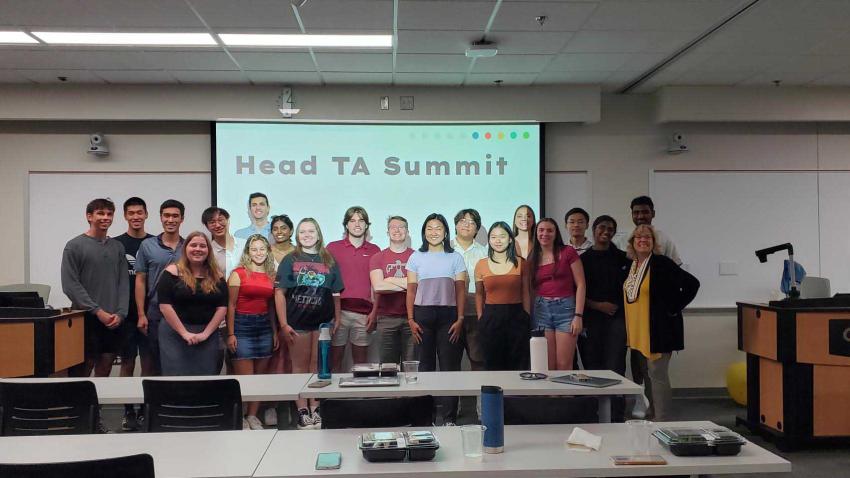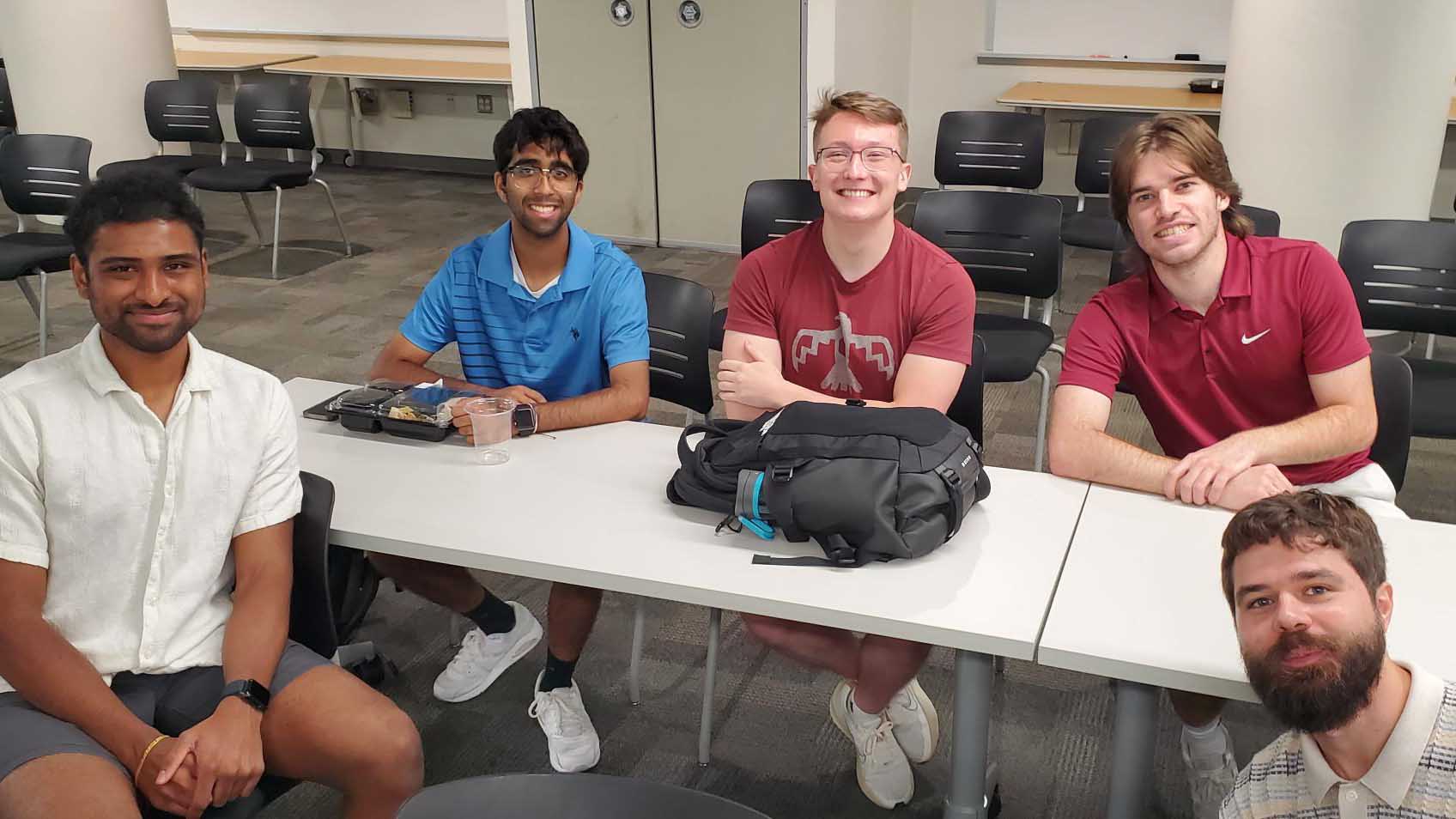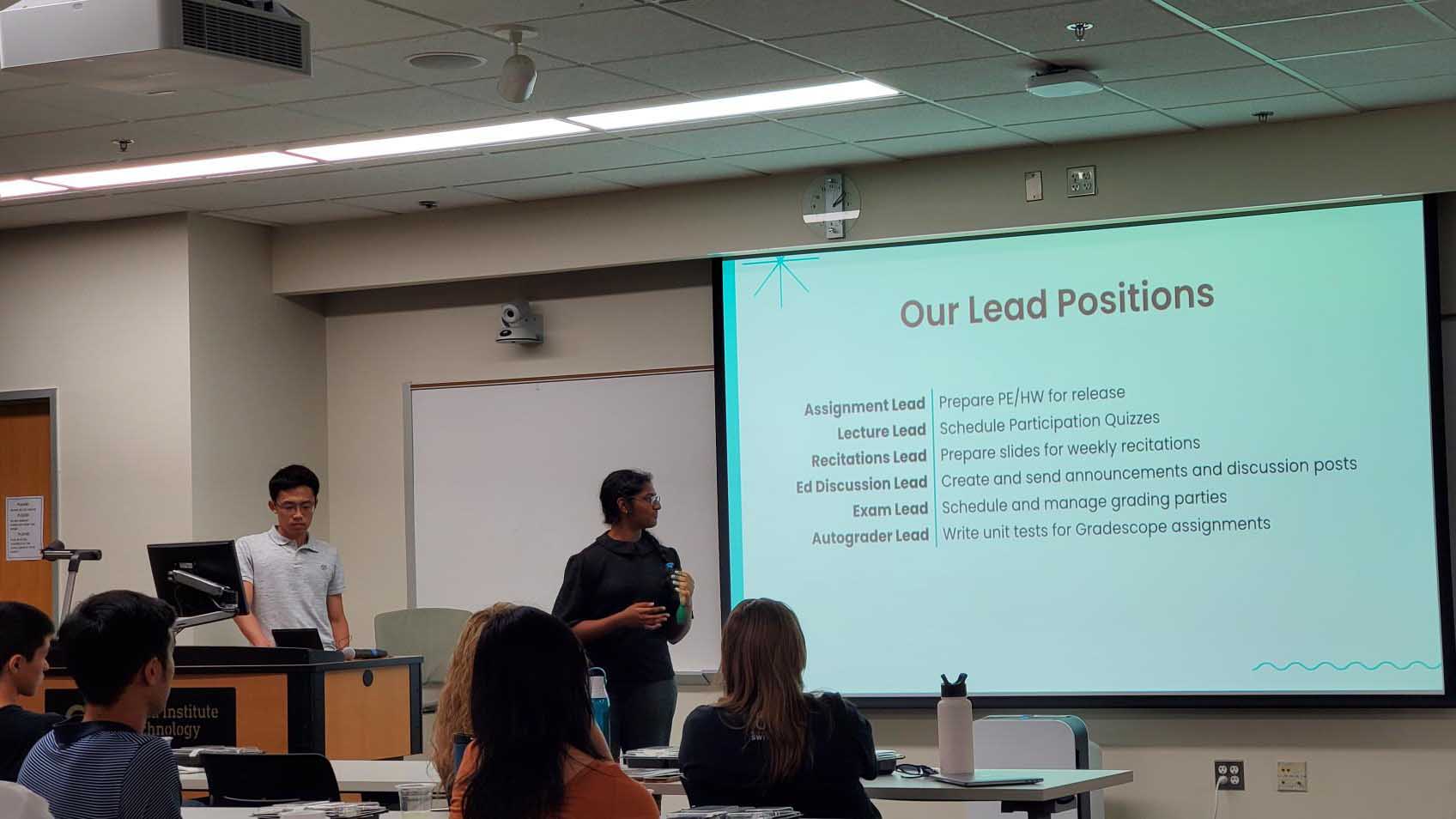
Head TA Summit: Enhancing Course Management and TA Support Across Computing
Head teaching assistants (TAs) from the School of Computing Instruction (SCI) emphasized sharing insights and building community at the College’s first-ever Head TA Summit.
The summit, organized by head TA Joey Orofino and SCI Associate Chair Mary Hudachek-Buswell, brought TAs from various courses together to exchange ideas, improve course management strategies, and foster collaboration.
Purpose of the Summit
Designed to provide a space for SCI’s 25 head TAs to discuss best practices, the summit featured brief presentations on procedures, technology, and strategies to build stronger TA-student communities. These sessions highlighted tools and processes that streamline running courses and make supporting students easier.
“We want to understand how each of us runs our courses. We can learn a lot from each other,” Orofino said.

Collaborative Tools and Resource Sharing
One of the summit’s major focuses was resource sharing. Organizers highlighted this focus by introducing a collaborative document-sharing platform.
The tool allows head TAs to upload and access resources like course materials and exam grading strategies. For example, Zhixian "Chris" Liding, the head TA for CS 1301, shared a method for distributing exam grading more evenly among a team, which other courses can now adopt.
Building a Stronger Community
Many participants who had never met in person found the summit an excellent opportunity to build connections. Lunch and icebreakers helped foster these relationships. By the end of the event, a head TA group chat was created for ongoing discussions and idea sharing, reinforcing collective growth within the community.
“This is the first time all the head TAs have been in a room together. We’re working to create a stronger community and share how we succeed in our courses,” Orofino said.

Diverse Course Experiences
One of the summit’s key takeaways was the range of challenges head TAs face across different courses. Athena Malek, a fourth-year industrial engineering major, noted that her course differs from larger computer science (CS) classes, both in structure and student population. She found it useful to see how other courses handle issues like late policies and the use of AI tools such as ChatGPT.
“It’s interesting to meet people and learn about the different styles of CS classes. Seeing how other courses handle things and incorporating those ideas into our sections is helpful,” Malek said.
Similarly, fourth-year CS major Mackenzie Thies discussed her class on video game development. Thies appreciated learning how larger classes manage their TA teams and finding ways to adapt those strategies to her smaller, more personalized course.
Results and Looking Ahead
By the end of the summit, participants had gained new knowledge, strengthened connections, and incorporated practical tools to improve their courses. Adding the head TA group chat and document-sharing platform set the stage for ongoing collaboration.


